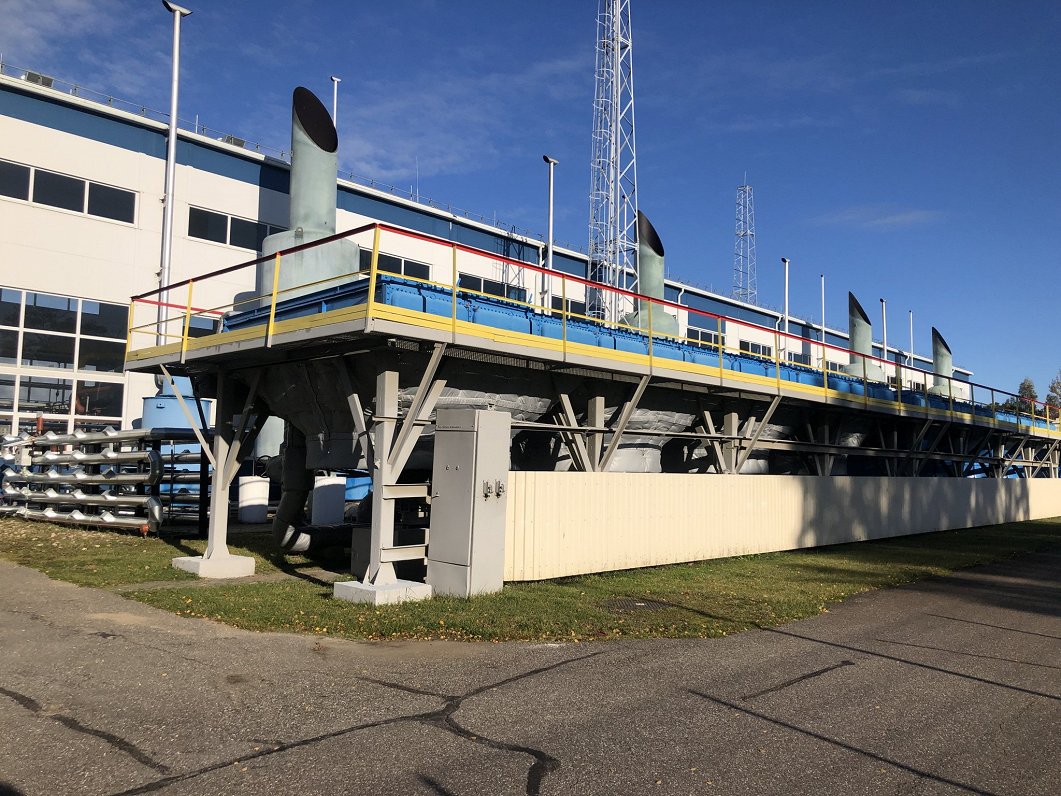“Overall, [..] along with the central zone for gas collection points and drills, the Inčukalns gas storage is taking up around 24 square kilometers," said Rinalds Dimiņš, head of the gas storage.
“On October 15 , we are starting the gas withdrawal season, but that certainly does not mean that withdrawal during injection and vice versa cannot take place. Of course, maintaining such a regime requires much more operativity and responsiveness from the Inčukalns gas storage, because the time period during which we have to prepare equipment from one direction of gas to another is much shorter than it was traditionally. But we're ready for it.”
For the first time in the company's history, two-way natural-gas flows in storage began taking place in February this year in response to geopolitical events in Europe.
"This has not been the typical type of operation of the store in the previous period, but it has now become possible. It gives flexibility to the gas market."
Dimiņš said that modernization projects started two years ago and plans are in place for the nearest 13 years. The investment is worth €200 million. €88 million is co-financed by the European Union.
Latvian Radio asked Dimiņš whether gas consumption was declining and whether the importance of the resource is not at risk.
"Gas consumption is declining thanks to all energy saving measures put in place and to switch to other forms of energy: chips, pellets, heat pumps. The decline in consumption is felt. Up to 30%, on the basis of the information I have."
"I'm not guessing that this trend will continue in the long run. For the most part, the austerity measures relate to the current price of natural gas. By sorting through these price levels and given that natural gas remains one of the most convenient and environmentally friendly fuels, I anticipate that consumption should return to the previous level. This is the situation of the moment," said Dimiņš.
Deputy State Secretary of the Ministry of Economics (EM) Edijs Šaicāns said that the reduction in gas consumption will affect gas flows in the system, including the amount of gas stored in Inčukalns.
"Of course, transformation is happening and these volumes are declining, but they are not going down as fast as they can say that this infrastructure will not be used. Clearly, the government, as well as operators, are looking at ways to integrate 'green' gases into their networks. In the long term, looks at hydrogen and thinks about how existing infrastructure can be adapted to these new green or synthetic gases. In order to do this, it is necessary to comply with the technical conditions. This requires technical assessment and studies whether the existing infrastructure is valid for it. And if so, it can be adjusted."
The closest thing that worries households and businesses is whether there will be enough gas for everyone this season. Dimiņš is convinced that there will be no issues with supply.
“I do not see any risk why the existing volume in storage would not be able to meet Latvia's needs. Currently, Inčukalns gas storage has 12.5 terawatt-hours of energy, which is close to 54% of storage capacity. [..] 50% of this gas belongs to gas merchants registered in Latvia. The rest is owned by foreign merchants – Lithuania, Estonia, and Finland. All of us operating in this gas market.”
Deputy Secretary of State Šaicāns said that everything has been done so far to make enough gas in Latvia during this heating season, and in the near future the State does not plan to purchase additional gas. Speaking about possible negative scenarios, he said:
"Technology is technology and needs to be understood. Infrastructure, gas, and pipelines are technical things. For example, [..] if something happens in the pipelines between Lithuania and Latvia, we don't see direct supply for a while. If there is a technical problem with the withdrawal in Inčukalns, then we cannot count on the gas that is in this storage. Conspiracy theories and scenarios on paper can all be written out. In practice, of course, operators have done all this so that it does not happen or that the possibility is minimal. But all probability can never be ruled out," the EM representative said.






























